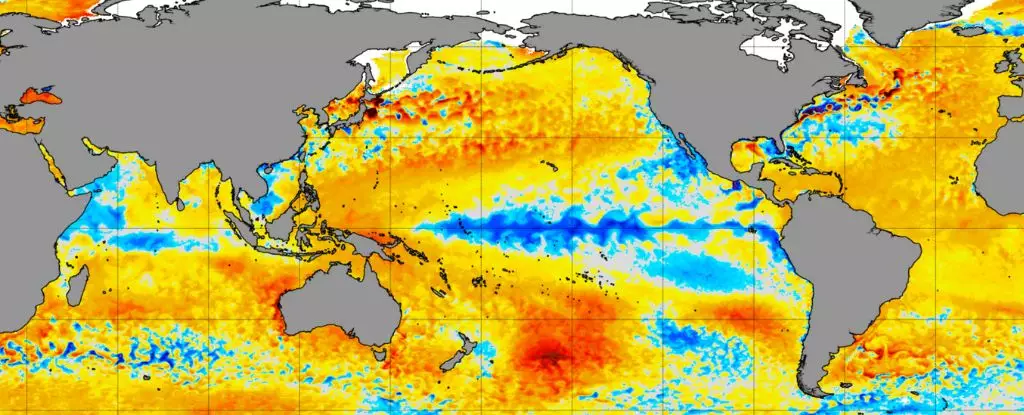The year 2023 marked a pivotal shift in the climate narrative as global temperatures soared to unprecedented levels, igniting a series of natural disasters across the planet. From the raging wildfires in Los Angeles to the devastating floods in Valencia, the rising temperatures have left researchers in a race against time to decipher the causes. New research from the University of Reading, UK, has shed light on the overwhelming increase in sea surface temperatures—now warming at rates previously unseen. The implications of these findings suggest that not only is the environment changing rapidly, but so too are our responsibilities to address these changes.
Recent data indicates that sea surface temperatures have surged more than four times faster since the late 1980s, challenging our previous understanding of oceanic behavior. In particular, the northern half of the Atlantic Ocean recorded its warmest December on record, a worrying benchmark in the context of climate change. As the oceans absorb excessive heat, the ripple effects have been catastrophic, influencing weather patterns, disrupting ecosystems, and contributing to human suffering.
Despite a consensus regarding the role of factors like El Niño and rising carbon dioxide levels, the reasons for this accelerated warming remain a complex puzzle. Various hypotheses have been proposed, including changes in atmospheric water vapor following the 2022 Hunga Tonga-Hunga Ha’apai eruption and restrictions on aerosols due to shipping regulations. Yet, when synthesized, these theories alone cannot account for the observed temperature spikes.
A crucial finding from the recent study highlights a disturbing trend: the rate of ocean warming has risen dramatically, from approximately 0.06°C per decade in the 1980s to a staggering 0.27°C per decade today. This nonlinear increase poses a challenge to climate models and profoundly affects our ability to predict future scenarios. Meteorologist Chris Merchant’s analogy of oceans being akin to a bathtub captures the essence of this matter. In simpler terms, if previous decades were only letting a trickle of hot water into the tub, we are now turning on the faucet at full blast.
Merchant and his colleagues predict that if this trend persists, we could surpass the sea surface temperature rise of the past four decades in just the next two decades. This projection raises alarming questions about ongoing environmental degradation and the potential for long-term impacts on biodiversity and human health.
The ramifications of excess thermal energy in the oceans are profound. Already, wildlife populations are in drastic decline, with many species threatened by rapidly changing habitats. Meanwhile, agriculture suffers as rising temperatures disrupt growing cycles, leading to food shortages and increasing hunger among vulnerable populations. The rise in temperature does not just affect physical environments; it exacerbates health conditions and fosters the spread of diseases, further burdening healthcare systems worldwide.
Yet, amidst these troubling developments, there is a silver lining—a growing recognition of the urgency for sweeping policy changes. The research emphasizes that the historical data on global warming may not accurately reflect future changes, underscoring the immediate need for strategic action in climate policies.
Science has long outlined necessary steps to mitigate climate change; however, political and economic inertia, particularly from fossil fuel industries, has fostered an environment of complicity in the acceleration of these issues. It is apparent that every action counts; even minor adjustments in our fossil fuel consumption can yield significant positive outcomes for future generations.
The findings of the University of Reading do not merely serve as yet another warning; they compel us to confront the reality of our situation. Each day that policymakers delay implementing decisive actions is a day lost in the fight against climate change. The call for immediate reductions in fossil fuel burning, a shift towards renewable energy sources, and increased environmental awareness is louder than ever.
In light of the overwhelming evidence and trends underscored by recent studies, we find ourselves at a crucial juncture. The urgency to act against climate change cannot be overstated, as the accelerated warming of our oceans not only threatens our ecosystems but also the very fabric of society. It is imperative that we confront our role in this crisis head-on. Only through collective action and a commitment to policy reform can we hope to navigate the turbulent waters ahead and safeguard our planet for future generations.


Leave a Reply